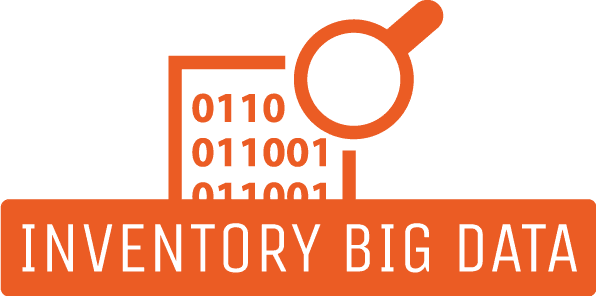Owen – Chief Financial Officer
Description
Who’s Owen?
Owen is a Chief Financial Officer (CFO), the senior executive responsible for managing the finances of his company or organization.
Owen, the CFO, is determined and passionate about his job. From an early age, Owen developed an interest in numbers and financial management. He began his studies at business school, graduating with a degree in finance and accounting. Subsequently, Owen went on to gain a Master’s degree in Business Management, which gave him a better understanding of the business world and prepared him for his future responsibilities.
Early in his career, Owen worked as a financial analyst for a large international company. He quickly rose through the ranks thanks to his rigor, organizational skills and ability to solve financial problems. After several years’ experience in various financial positions, Owen was promoted to CFO, where he implemented effective strategies to optimize the company’s finances and ensure its growth.
Owen is a natural leader, able to inspire and motivate his team. He is renowned for his ability to listen, to care and to handle difficult situations diplomatically. Owen is also an excellent communicator, enabling him to work closely with other company departments and present financial results to investors and stakeholders in a clear and convincing manner.
Outside work, Owen is a keen traveller and sportsman. He enjoys discovering new cultures and sharing his experiences with friends and family. He is also an avid runner and regularly takes part in marathons, which helps him develop perseverance and discipline, qualities he also applies to his day-to-day work.
In short, Owen is an experienced, dedicated and talented CFO, who combines technical skills with human qualities to lead his team and company to success.
FAQ
What is the role of a CFO?
- The CFO is responsible for managing a company’s finances, including financial planning, budget management, financial performance analysis and risk management. They also work closely with other departments to ensure the company’s profitability and growth.
How does a CFO contribute to corporate strategy?
- The CFO plays an active role in shaping the company’s overall strategy, providing financial information and profitability analyses for projects and investments. He or she also ensures that financial objectives are aligned with the company’s overall goals.
What are the key skills of a CFO?
- A CFO must possess skills in financial analysis, budget management, financial planning, risk management, leadership and communication.
How does a CFO work with other departments?
- The CFO works with other departments to develop and manage budgets, assess project profitability and identify opportunities to improve financial performance. He or she also acts as a point of contact for financial issues, and assists decision-making by providing clear and accurate financial information.
What role does the CFO play in risk management?
- The CFO is responsible for identifying, assessing and managing the financial risks to which the company is exposed. He or she implements control and monitoring mechanisms to minimize these risks, and ensures that the company has sufficient liquidity to deal with unforeseen events.
How does the CFO ensure compliance with financial regulations?
- The CFO works closely with legal and tax advisors to ensure that the company complies with financial, tax and corporate governance regulations. He or she also ensures that financial reporting is accurate, transparent and compliant with current accounting standards.
What are the CFO’s responsibilities in terms of financial reporting?
- The CFO is responsible for the preparation and presentation of financial reports, such as financial statements, budgets and forecasts. He/she ensures that these reports are accurate, up to date and in line with current accounting standards and regulations.
How does the CFO communicate with investors and shareholders?
- The CFO plays a key role in communicating with investors and shareholders by presenting the company’s financial results, explaining performance and growth prospects, and answering questions about the company’s finances. He or she also takes part in meetings with investors and shareholders.
Meeting routines
First discussion: Owen the CFO and Thomas the shareholder
Problem: Thomas is concerned about inefficient inventory management, resulting in high costs and unsatisfactory customer service.
Owen: Hello Thomas, I hear you have some concerns about our inventory management and the impact on our service levels. I’m happy to discuss our current actions and possible improvements.
Thomas: Hi Owen, yes, I’m concerned that our storage costs are high and that our service rate isn’t living up to our customers’ expectations. Do you have any ideas for improving this situation?
Owen: Absolutely, Thomas. I think implementing the ABC log methodology can help us solve this problem. By classifying our products according to their value and importance to the company, we’ll be able to allocate our resources in a more efficient and differentiated way. This will enable us to improve our stock levels and service rates.
Thomas: That sounds promising. How do you plan to implement this methodology?
Owen: First, we’ll analyze our products and classify them into three categories: A for high-value items, B for medium-value items and C for low-value items. Then we’ll adapt our stocking and replenishment strategy for each category, giving priority to category A items. This will enable us to reduce our storage costs and improve our service rate for the most important items.
Thomas: I’m delighted to hear that, Owen. I hope this approach will save us money and improve our performance. Thank you for considering my concerns.
Second discussion: Owen the CFO and Victor the General Manager
Issue: Victor is concerned about the company’s operational efficiency and is looking for solutions to optimize processes and reduce costs.
Owen: Hi Victor, I wanted to talk to you about an approach we could take to improve our operational efficiency and reduce our costs. I recently spoke to one of our shareholders about implementing the ABC log method to optimize our inventory management.
Victor: Hi Owen, I’m interested to know more. How does it work and how could it improve our operational efficiency?
Owen: The ABC log method involves classifying our products according to their value and importance to the company. By tailoring our stocking and replenishment strategy for each category, we can allocate our resources in a more efficient and differentiated way. This will not only enable us to improve our stock levels and service rates, but also streamline our processes and reduce the associated costs.
Victor: Sounds like a great idea



